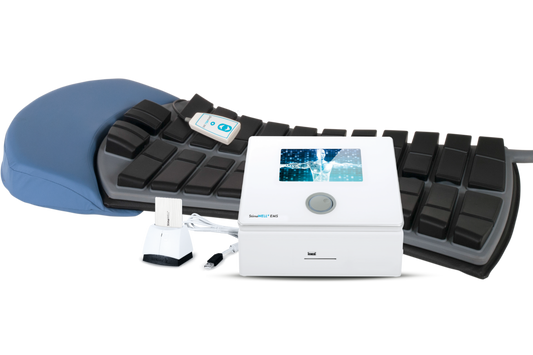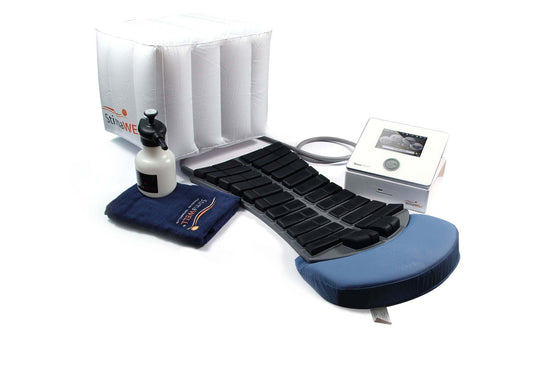
PEMF THERAPY FOR CARDIOVASCULAR ISSUES
PEMF (Pulsed Electromagnetic Field) therapy is increasingly being recognized as a beneficial treatment for various cardiovascular issues. By enhancing cellular function and improving blood circulation, PEMF therapy can offer significant benefits for heart health and overall vascular integrity. Using a PEMF mat could potentially help in managing conditions such as hypertension, poor circulation, and recovery after cardiac events. Here’s a detailed explanation of how PEMF therapy can aid in the management of cardiovascular issues and why investing in a PEMF mat could be crucial for your heart health.
Understanding Cardiovascular Issues and PEMF Therapy
Cardiovascular diseases encompass a range of conditions affecting the heart and blood vessels, including coronary artery disease, arrhythmias, and hypertension. These conditions can lead to serious health problems, including heart attacks and strokes. Conventional treatments typically involve lifestyle changes, medication, and in severe cases, surgical interventions. PEMF therapy offers a non-invasive supplement by promoting better cellular health and enhanced blood flow, crucial for maintaining cardiovascular health.
How PEMF Therapy Helps with Cardiovascular Issues
Improvement in Circulation:
PEMF therapy stimulates the production of nitric oxide, a natural vasodilator that improves blood circulation. Enhanced circulation helps in reducing blood pressure and improving the oxygenation of tissues, which is vital for heart health and the prevention of cardiovascular diseases.
Reduction of Inflammation:
Chronic inflammation is a key factor in the development of cardiovascular diseases. PEMF therapy has been shown to reduce inflammation by modulating inflammatory pathways, thereby potentially reducing the risk of conditions like atherosclerosis—a major factor in heart disease.
Stress Reduction:
Stress is a significant contributor to heart disease. PEMF therapy can induce a relaxing effect, lowering stress and reducing the burden on the cardiovascular system. This relaxation response can help in managing blood pressure and reducing the overall strain on the heart.
Enhancement of Cellular Repair:
PEMF therapy stimulates cellular repair mechanisms, which can be beneficial in recovering from and managing heart damage. By enhancing the repair and regeneration of vascular cells, PEMF therapy can help maintain the elasticity and functionality of blood vessels.
PEMF MAT BENEFITS FOR CARDIOVASCULAR HEALTH
Our PEMF mat is specifically designed to optimize the therapeutic effects for cardiovascular health:
Full-Body Coverage:
The large surface area of the mat ensures comprehensive treatment, influencing not just the heart but the entire vascular system.
Customizable Settings:
Since cardiovascular conditions vary greatly among individuals, our PEMF mat offers adjustable settings to cater to specific needs, allowing for personalized therapy sessions.
Ease of Use:
Designed for daily use, our PEMF mat can be easily integrated into your home setting, enabling regular sessions without the need to visit medical facilities frequently.
Safety and Comfort:
Built from high-quality materials, our mat ensures safety and comfort for all users, making it suitable for prolonged use without any discomfort.
CONCLUSION
Incorporating a PEMF mat into your routine can significantly enhance your management of cardiovascular issues. By improving circulation, reducing inflammation, managing stress, and promoting cellular repair, PEMF therapy offers a non-invasive, drug-free way to support heart health and improve your overall quality of life.
RECOMMENDED PROGRAMS
If you already own one of our PEMF Mats we recommend these programs for Cardiovascular Issues:
-
SEDONA PRO/PRO PLUS PEMT MAT
Relax: 1, 2, 3, 4, 5
Wellness: 1, 2, 3, 4, 5, 6
-
SEDONA ELITE PEMF MAT
Wellness: 1, 2
Longevity: 1, 2
STUDIES
-
Read Study
Science Direct - Electromagnetic field therapy in cardiovascular diseases: A review of patents, clinically effective devices, and mechanism of therapeutic effects
-
Read Study
PubMed - Pulsed electromagnetic field improves cardiac function in response to myocardial infarction
-
Read Study
Research Gate - Impact of pulsed electromagnetic field therapy on vascular function and blood pressure in hypertensive individuals
SEDONA WELLNESS PRODUCTS
-
SEDONA PEMF FACEMASK
Vendor:Sedona Wellness4.75 / 5.0
(4) 4 total reviews
Regular price $390.00 USDRegular priceUnit price / per -
TIMMYZZZ PEMF PILLOW
Vendor:Sedona Wellness4.67 / 5.0
(3) 3 total reviews
Regular price $390.00 USDRegular priceUnit price / per -
SEDONA PRO PEMF MAT
Vendor:Sedona Wellness5.0 / 5.0
(12) 12 total reviews
Regular price From $5,900.00 USDRegular priceUnit price / per -
SEDONA PRO PLUS PEMF MAT
Vendor:Sedona Wellness5.0 / 5.0
(8) 8 total reviews
Regular price From $6,900.00 USDRegular priceUnit price / per -
SEDONA ELITE PEMF MAT
Vendor:Sedona Wellness5.0 / 5.0
(20) 20 total reviews
Regular price From $7,900.00 USDRegular priceUnit price / per -
SEDONA PEMF CHAIR
Vendor:Sedona WellnessRegular price From $16,900.00 USDRegular priceUnit price / per -
STIMAWELL EMS BACK MAT
Vendor:Sedona WellnessRegular price $16,900.00 USDRegular priceUnit price / per -
LONGEVITY LOUNGER PEMF BED
Vendor:Sedona WellnessRegular price From $21,900.00 USDRegular priceUnit price / per

















